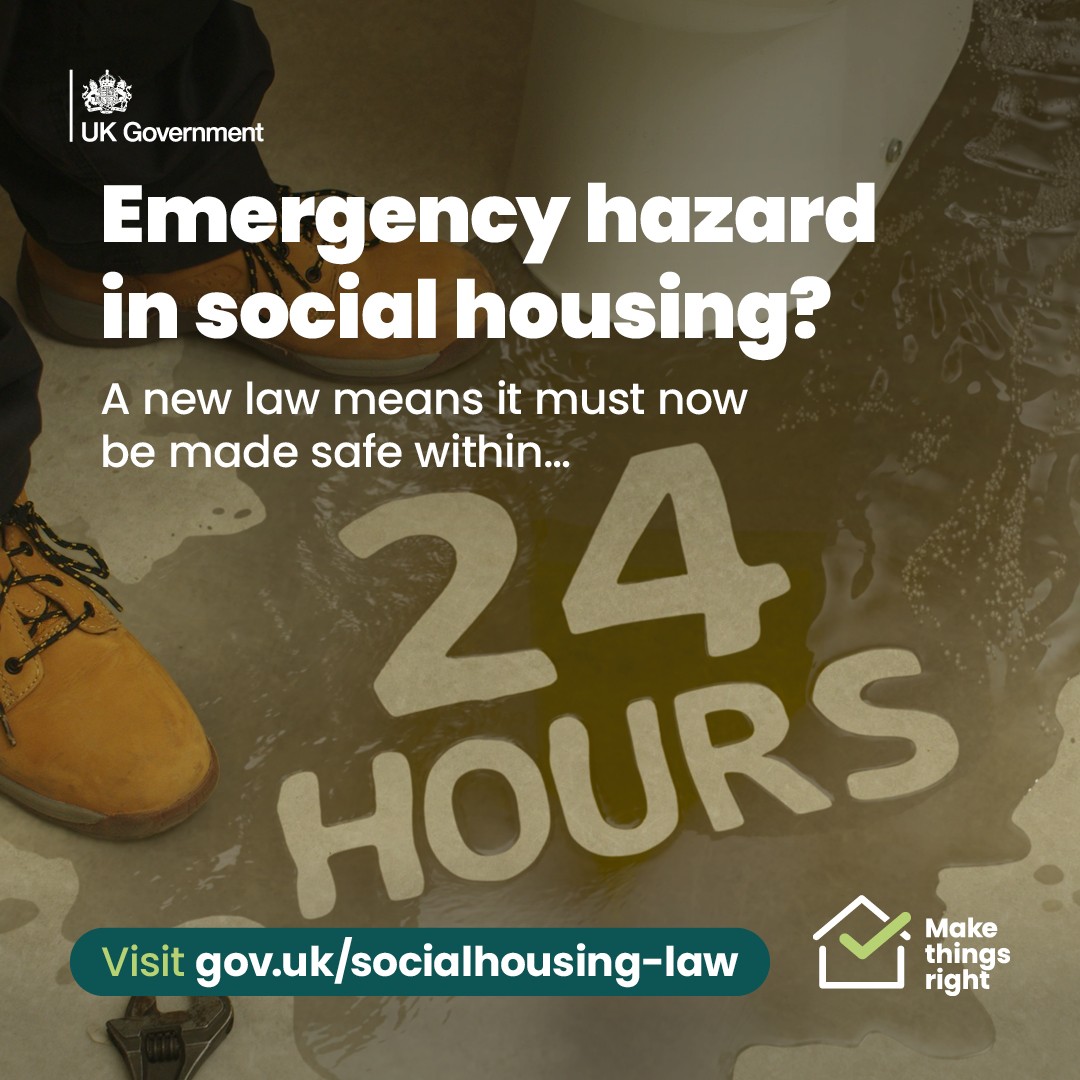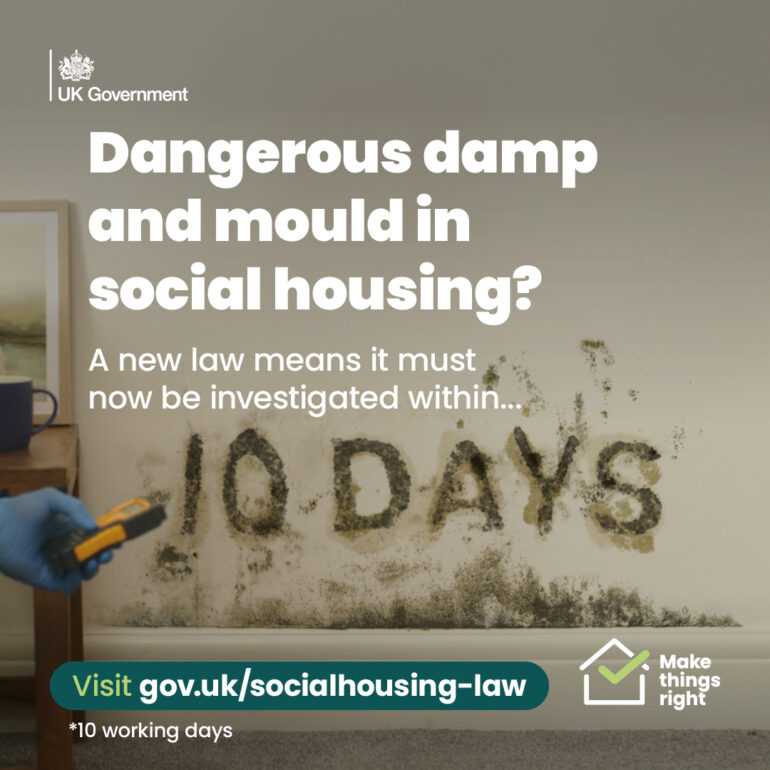Listeners:
Top listeners:
-
 play_arrow
play_arrow Cosoro Afrobeats UK's No.1 Afrobeats Radio Station
-
 play_arrow
play_arrow Cosoro Pidgin Na we b d No.1 UK Pidgin Radio
-
 play_arrow
play_arrow Cosoro Evergreen UK's No.1 Radio for Timeless African Sounds

Landmark reforms to protect social housing tenants has come into effect from 27 October, compelling landlords to fix dangerous conditions swiftly and prevent further tragedies.
Millions of tenants across England will soon benefit from safer, healthier homes as the first phase of Awaab’s Law comes into force. The new rules, introduced on Monday 27 October, will require social landlords to take urgent action to repair dangerous conditions or face legal consequences.
Named in memory of two-year-old Awaab Ishak, who tragically died in 2020 from prolonged exposure to mould in his Rochdale home, the law represents a defining step toward greater safety and accountability in social housing.
Under the new regulations, landlords must now:
-
Address emergency health and safety hazards within 24 hours of being reported.
-
Investigate cases of significant damp and mould within 10 working days, and make properties safe within a further five working days.
-
Provide written updates to tenants within three working days of inspection, detailing findings and next steps.

Landlords are also legally required to consider individual tenant circumstances, including young children, disabled residents, and those with health conditions when assessing risks. Where properties cannot be made safe within the required timeframes, alternative accommodation must be provided.
Failure to comply could result in court action, with potential penalties including enforcement orders, compensation payments, legal costs, and loss of rent where homes are deemed uninhabitable.
Housing Secretary Steve Reed said:
“Everyone deserves a safe and decent home to live in, and Awaab Ishak is a powerful reminder of how this can sadly be a matter of life or death.
Awaab’s family has fought hard for change, and their work to protect millions of tenants’ lives will live on as a legacy to their son.
Our changes will give tenants a stronger voice and force landlords to act urgently when lives are at risk, ensuring such tragedies are never repeated.”
Christian Weaver, barrister to the Ishak family, added:
“Awaab’s Law marks a watershed moment for tenants’ rights. It represents a significant step forward in ensuring that no family suffers harm from hazards in their home due to their landlord’s failure to act.
These new legal duties compel landlords to respond swiftly and responsibly a vital change that ensures Awaab’s tragic death will not be in vain.”
Additional phases of Awaab’s Law will be rolled out in 2026 and 2027, extending protections to cover a broader range of housing hazards. These measures form part of the government’s wider plan to deliver 1.5 million new homes, including the largest expansion of social and affordable housing in a generation.
To strengthen tenant voices, the government has also launched a £1 million Tenant Empowerment Fund, announced today. The initiative will support innovative projects that improve communication and engagement between tenants and landlords.
Grants of up to £100,000 will be available to organisations with strong proposals to help tenants have more influence over housing decisions. Examples could include developing online engagement platforms, awareness campaigns, or dedicated tenant liaison roles.
This investment aims to replace outdated, inefficient communication systems that have left too many tenants feeling ignored and unsafe in their homes.
For more information about Awaab’s Law and the new social housing safety standards, visit: gov.uk/socialhousing-law
Written by: Adedoyin Adedara
Similar posts
Recent Comments
No comments to show.
Copyright © 2025 Cosoro Radio | All rights reserved









